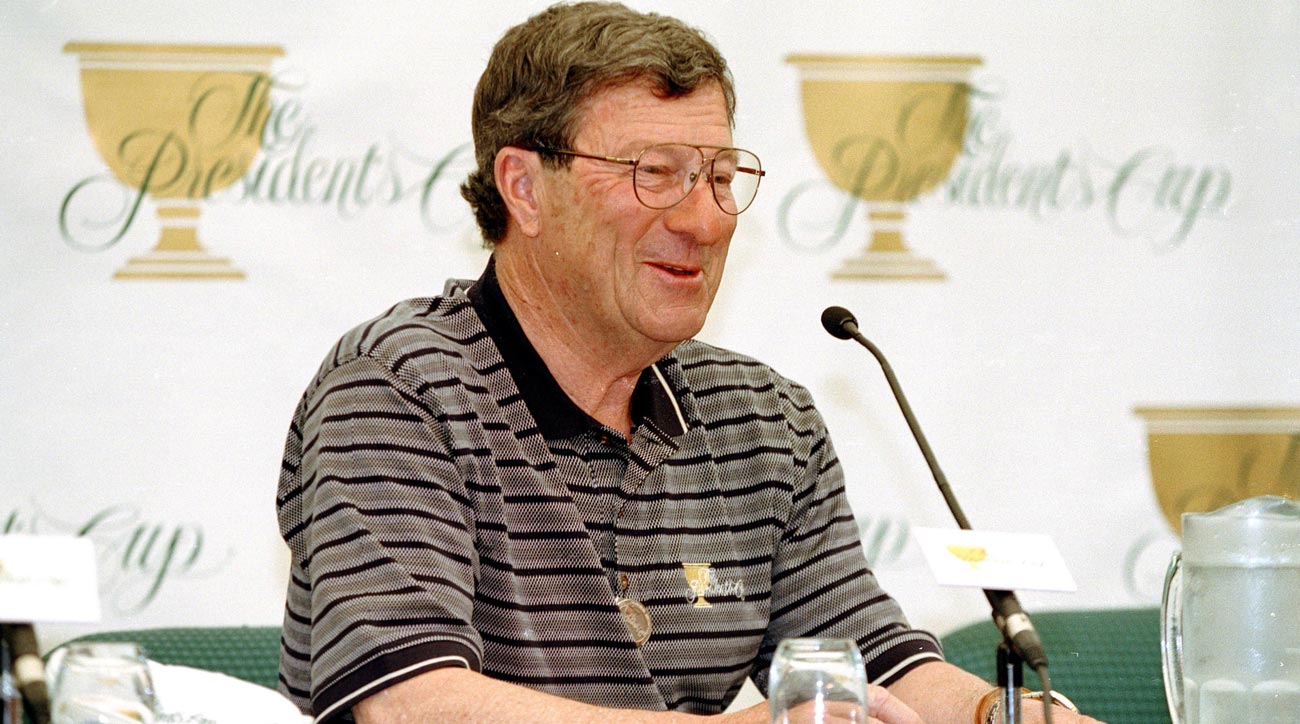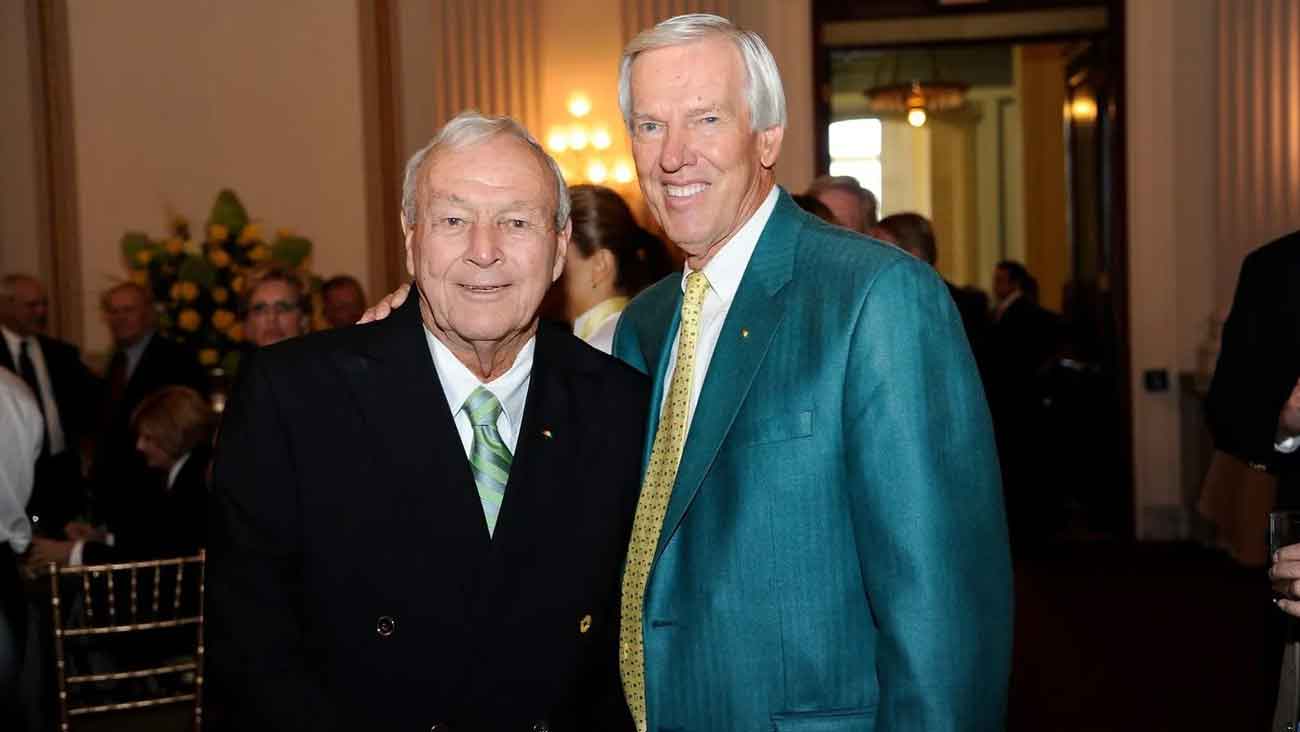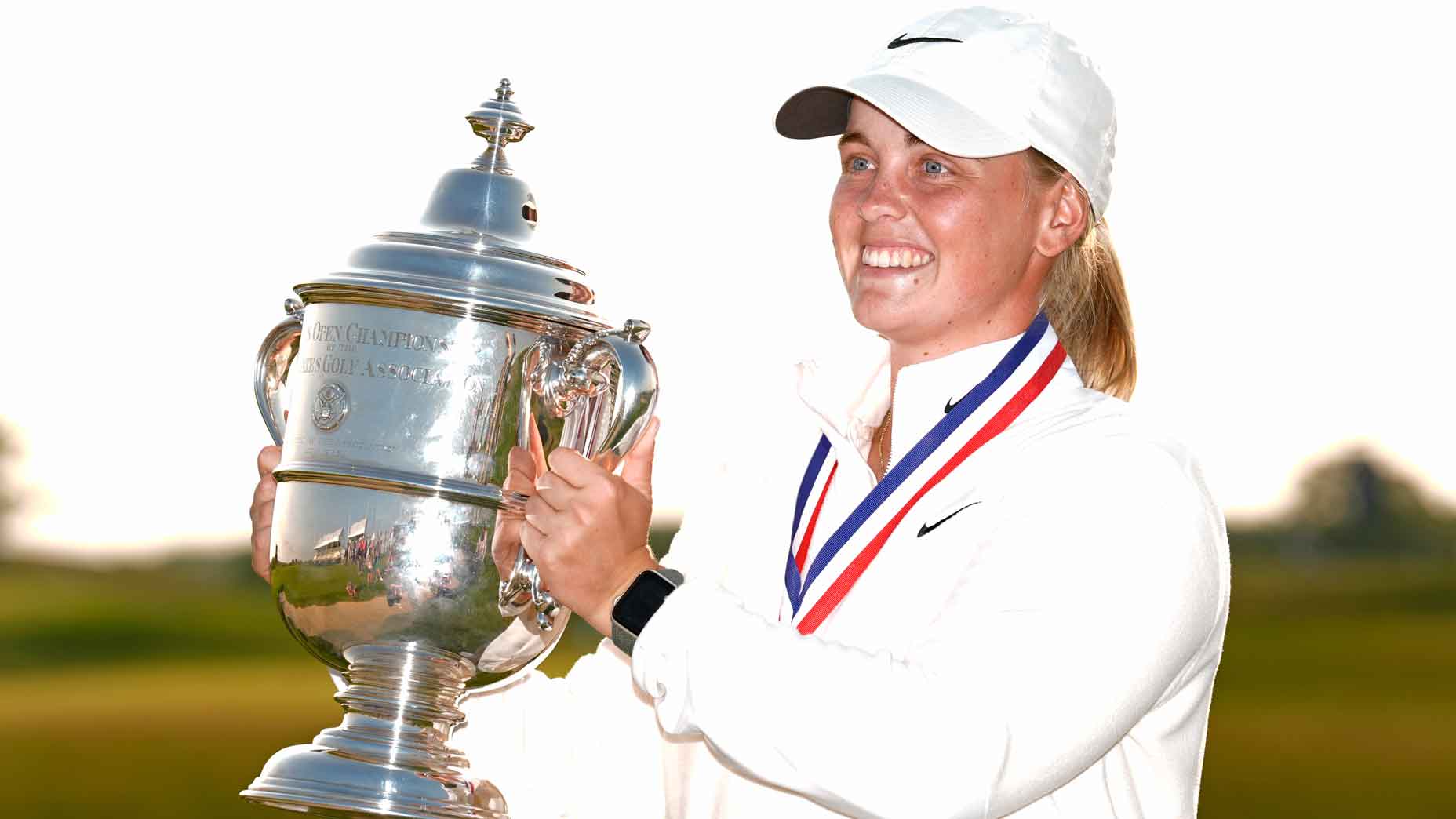Australian golf legend Peter Thomson died Wednesday at the age of 88 after a four-year battle with Parkinson’s disease.
Thomson solidified his reputation on the golf course with five Open Championship wins, tied with Tom Watson for the most ever. He is the only player since the 19th century to win three British Opens in a row, from 1954-1956.
Thomson died at his home in Melbourne surrounded by his family, according to the Associated Press.
Below is the final interview GOLF did with the Hall of Fame golfer.
———-
Though he has five British Opens to his name, Peter Thomson is perhaps golf’s most underrated multiple major winner. His career peaked just before TV made household names of Palmer, Nicklaus and Player — only his last Open win, in 1965, was broadcast in America. The World Golf Hall of Famer, 78, phoned us from his home in Melbourne to discuss the tournament that defines his career, and what might have been.
When you won your first Open, at Birkdale, in 1954, the prize money was only about $1,500.
Believe it or not, in those days, that could buy you a pretty nice house. But with Padraig winning [over a million] last year, I guess I was just born at the wrong time. It was one reason I went on to win the Open five times — the prizes were so small back then that the money was all spent by Christmas!
The year before, you saw Hogan win in the only Open he ever played, at Carnoustie.
I was really surprised at how well Hogan did. It was obviously not a question of his ability. But he really didn’t like what he saw at Carnoustie. He hated every minute of his stay. Accommodations in those days were not great, and it was an extraordinary feat to be able to play so well and do what he did while at the same time hating [the surroundings]. He almost gave in and went home. Hogan rejected all the hotels, and some finance company put him up in a country lodge, away from the town, where he could feel comfortable and play well.
What impact did Palmer have when he turned up for the Open for the first time in 1960?
He was a phenomenon! He was the first fellow to take aim at the hole with the putter from 30 feet. He really thought he could hole them from that distance, where nobody else in my era had dreamed of it. Also, he was a smasher, and that was different and new. It was thought that if you really thrashed at the ball and belted the cover off it, you were being stupid. But Palmer did it and did it well. And that changed the professional game. All the young guys coming through started to smash at the ball the way Palmer did.
Palmer ushered in the TV era. Did you peak too soon, before you could become a household name?
The British Open was only [first] televised in 1965, for my last victory. If I had won all of my Opens in the 1960s, I think my name would have been much bigger. If I had won five times on television it would have been different. That’s what happened to Tom Watson. He won five times (between 1975 and 1983). And he became a household name.
Did you want to be famous?
Nah, I never wanted that. I am in no way envious. I didn’t want to be a public star. Such a person is looked down upon in Australia [laughs]. We have a way of chopping the heads off tall poppies.
Royal Birkdale has been tweaked over the years to accommodate today’s longer players. Your take?
It’s sad, but I do support the changes. The fault lies not with the course but with the ball. It is long overdue for the R&A and the USGA to rein in the ball to preserve the world’s classic courses.
Are you happy with how club technology has changed the modern game?
I don’t have a quarrel with the improved club technology. It’s a vast improvement over what we played in the ’50s and ’60s. I wish I’d had today’s drivers back in my day — I could have shot some really low scores! But I think shotmaking is dying. The change in the ball has had an enormous effect.
Why do you think you had victories around the world but limited success in the States?
I was developing when I played in the States. I was still a young man. And I marveled at the skill of players like Hogan, veled Tony Lema, Julius Boros, Cary Middlecoff and Sam Snead. Sam was my hero. To this day I haven’t seen anybody better. Those guys were giants. Around 1960 I chose to turn my back on the U.S. tour just as it was about to boom [laughs].
Prior to 1960, other than Augusta and the U.S. Open, public courses were used for Tour events — we played on some pretty poor courses, and I didn’t enjoy that too much. Then, when I left, color television came in, country clubs wanted to have tournaments, and so the whole standard lifted. One of the reasons I left was because they brought in a rule that you had to sign up to play a minimum of 15 times a year and couldn’t play anywhere else without permission! And I just thought, no — I’m not mission! having any of that.
Five of your countrymen — Adam Scott, Stuart Appleby, Geoff Ogilvy, Aaron Baddeley, and Robert Allenby — are in the World Top 50. Why do Aussies excel at golf?
It’s mysterious. We make golf available. We have a sporting spirit. No matter what sport you play, you should try to become good at it. It’s not just a pastime — sport should be a contest. All of Australia goes at it with that attitude. Now, there has been some Australian-like attitude from like some British players. Tony Jacklin was cheeky. And Nick Faldo. No one was cheekier than Faldo!
Tiger can be cheeky too. Is he the most talented player ever?
Tiger is the modern player with the attitude to win. Sam [Snead] didn’t have that desperate attitude. Tiger will be the most successful golfer ever. But that’s not the same as being the best. With both playing at their best, Snead would beat Tiger. But I wasn’t in their class.






